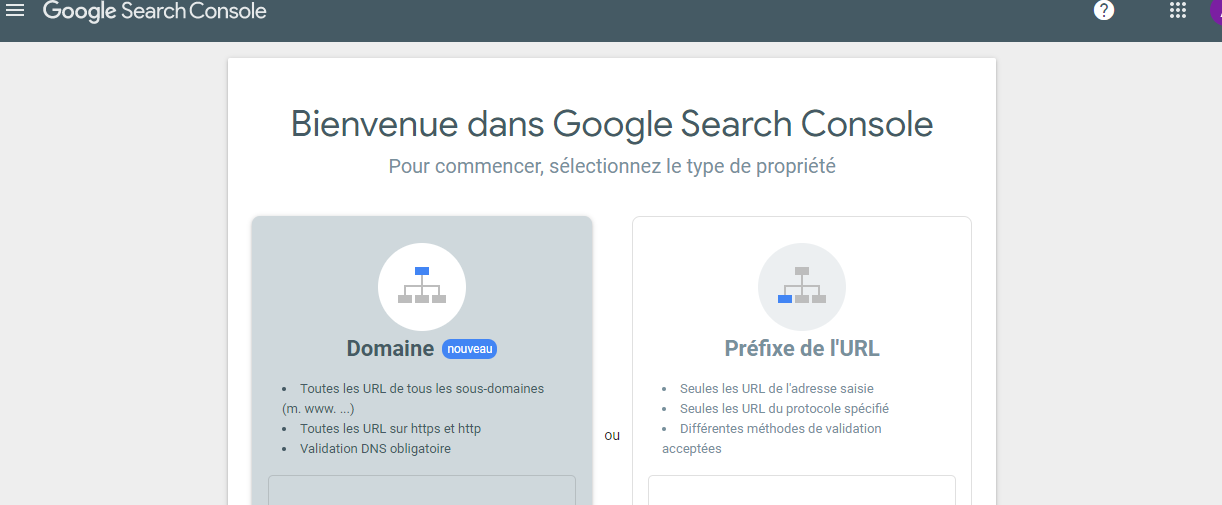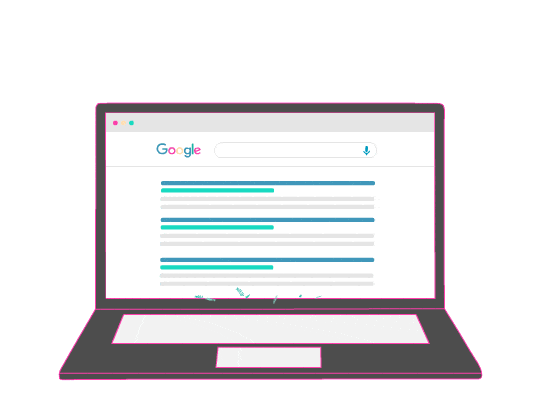Authority is the ability of a website to rank high in search results when a query is made. This ability is usually due to domain authority, page authority and link authority.
Is success on the web something easy? Absolutely not! When you discount the things that fortuitously go viral overnight, getting known on the web is a long-term effort.
You have to employ various web marketing strategies, including SEO, to develop your website and brand enough to become an authority
This is a concept that may seem unclear, as it takes into consideration several elements
In this article, we will find out what is meant by “authority” and you will know how your website can become one.
Chapter 1: What does Authority mean?
According to Laroussethe word authority means :
”Credit, influence, power enjoyed by someone or a group in the field of knowledge or any activity, because of its value, experience, position in society, etc.; character of something whose value, seriousness, commonly recognized, allow it to serve as a reference.”
In terms of SEO, the word ”Authority” keeps the same meaning stated in the dictionary, but only that here it is attributed to:
- A domain or site ;
- A page ;
- A link;
This would mean that if we must approach the word ”Authority” in its entirety, it would be better to define it according to each of its three elements to which it is linked.
1.1) What is Domain Authority?
Let’s start with the definition of the domain authority and everything we need to understand.
1.1.1. Definition of domain authority
The first impression or definition that we have, when we talk about Domain Authority, is a general set of unconfirmed criteria, but considerably included in the way Google and other search engines rank the search results
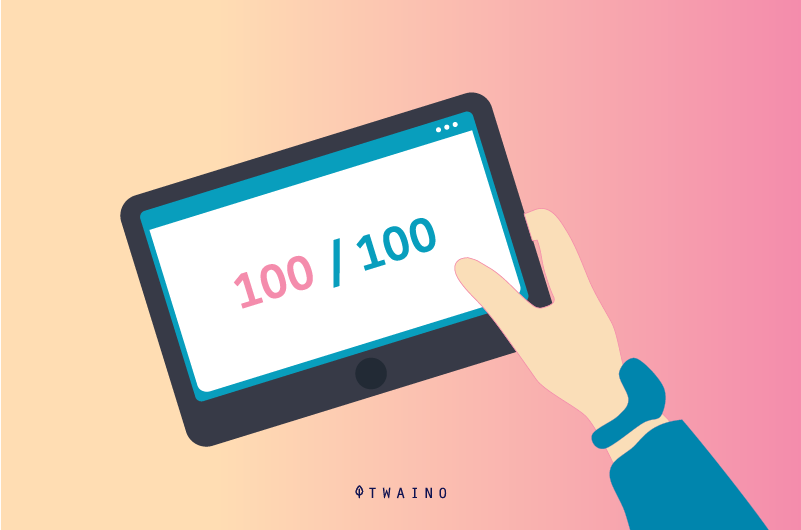
Moz took the idea and gave it the official name “Domain Authority” which is often abbreviated to “DA”.
Domain authority is an indicator of the power that your website holds. This indicator includes several other signals that determine the quality and confidence of the website.
A large part of these indicators is the sum of the authority that each page on the website has (Page Authority).
All we know is that when search engines want to display search results (SERP), they usually index the page with relevant and trustworthy content.
But Google has never revealed how its algorithm calculates the authority or value of a site before ranking them.
This has prompted some SEO experts like Moz to implement their own domain authority formulas, which have been shown to correlate strongly with page rankings in a query
Moz’s scale ranges from zero to 100, with zero generally being assigned to new sites with no authority, and 100 for the most trusted sites on the Web.
Domain authority applies to your entire domain, so every page on your site shares the same authority rating.
1.1.2. What are the benefits of measuring your DA?
First of all domain authority is based on different factors operated by Moz and if your website meets these factors, its authority estimate will be quite high
In addition to that, here are some other benefits that measuring your domain authority can give you.
1.1.2.1. It helps to know the optimization of a website
None of the search engines, be it Google, Bing, Baidu, Yandex…, specifically have an analytical tool or feature that can let you know the score of your website.
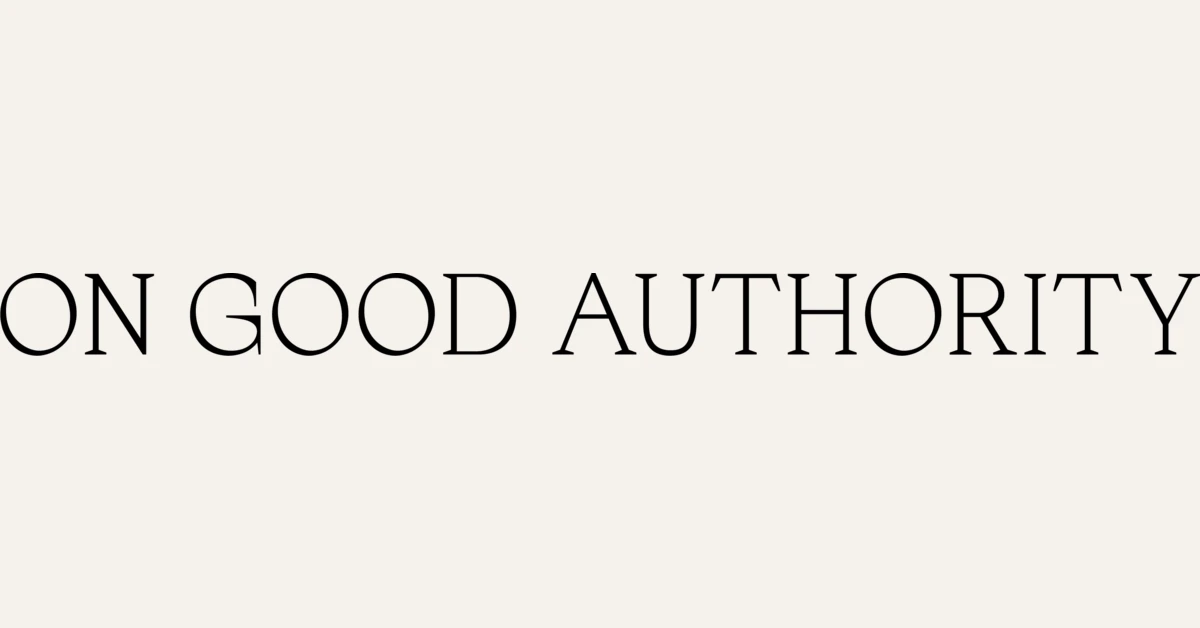
Source shopify
However, most of the domain authority factors are similar or similar to the search engine optimization factors, that said, when you follow the SEO rules according to Google’s guidelines, you have a good authority.
Therefore, it can be clearly noted that a website with a better domain authority score has the potential to rank higher on the search results pages
1.1.2.2 It is useful to compare several websites
Whether you are getting a backlink or conducting the review by comparing multiple websites, domain authority can be seen as the measure of the strength of those websites
For example, if you compare two blogs via domain authority, you can identify which of the sites is better than the other.
This also gives you ideas on rare but legal SEO techniques to differentiate yourself from the competition.
1.1.2.3. Useful for advertising campaigns
Marketers usually look for sites with high authority to get the advantage of linking to them
For example, if a webmaster wants to create backlinks or a guest post from a website, the first thing he or she looks for is quality and authority.
For this, most marketers strive to increase the optimization of their website and regularly measure their score.
For example, before starting a campaign, they calculate the DA score and after the project is completed, they measure their effort again to make a comparison.
1.1.3. What factors influence DA?
Like Google, Moz uses dozens of metrics to predict the ranking of websites in the SERPS.
When assigning your website’s domain authority score, Moz leverages its Mozscape web index as well as MozRank and MozTrust to determine the weight of inbound and outbound links
While you can’t just keep track of every factor that affects your DA, you can still get the basics right to improve your domain’s performance.
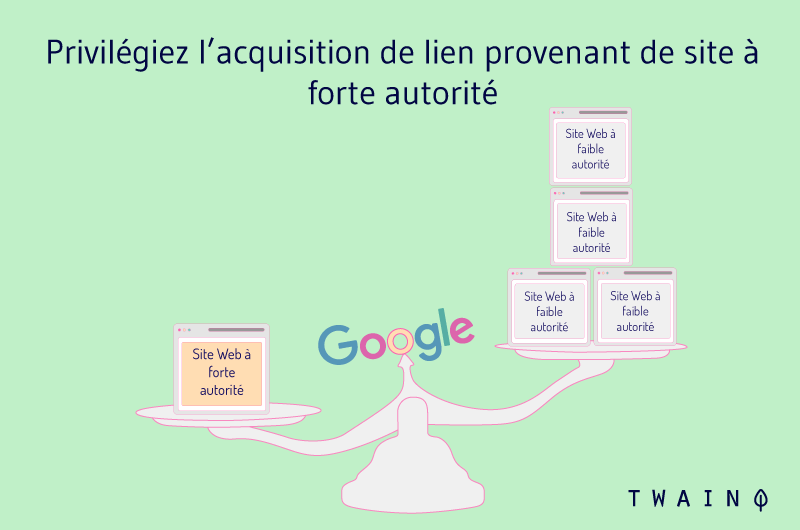
A good number of authoritative backlinks coming to your website is certainly a pretty strong point, but you should also keep in mind that too many backlinks can become a bad signal.
1.what is Page Authority?
Although there is a lot of convergence, Page Authority is a different metric than Domain Authority.
1.2.1. Definition of Page Authority
Page Authority is another metric created by Moz to indicate the power of each of the pages that exist on the Internet
Since Google stopped updating its PageRank data, Page Authority is the industry standard for predicting how a specific web page will perform in search engine results (SERPs).
Like DA, PA is also measured on a our that ranges from 1 to 100. A higher score means that a web page has strong authority and will have a better chance of ranking well.
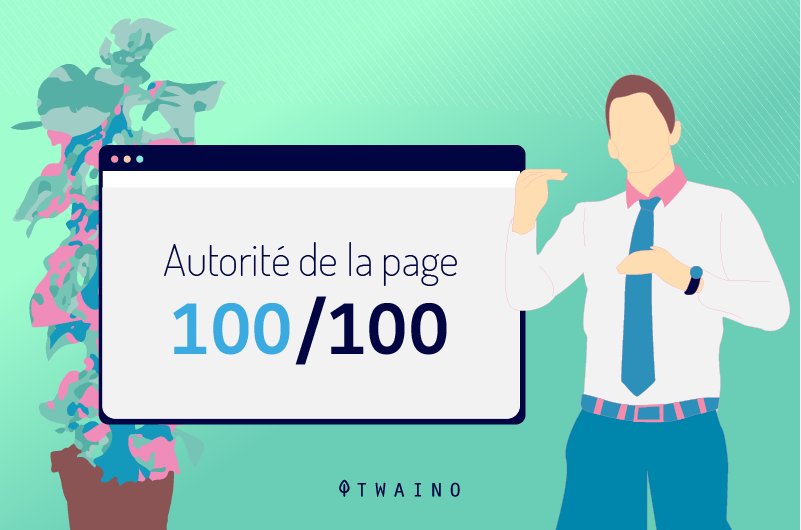
A lower score means that it will be more difficult for the page to compete with other similar pages in the search results.
1.2.2. Why is page authority important?
This metric is essential for tracking the competition in the market. It allows you to study keywords, identify the pages that are best positioned and determine the PA of each to define your strategy.
With this knowledge, you can create new and powerful tactics to improve your position against the competition.
It is worth noting that a well-executed SEO campaign resulting in high PA translates into good visibility, therefore, a more popular site.
1.2.3. The difference between Page Authority and Domain Authority
Page authority is about the strength of a single page, while domain authority measures the strength of an entire domain or its sub-domains.
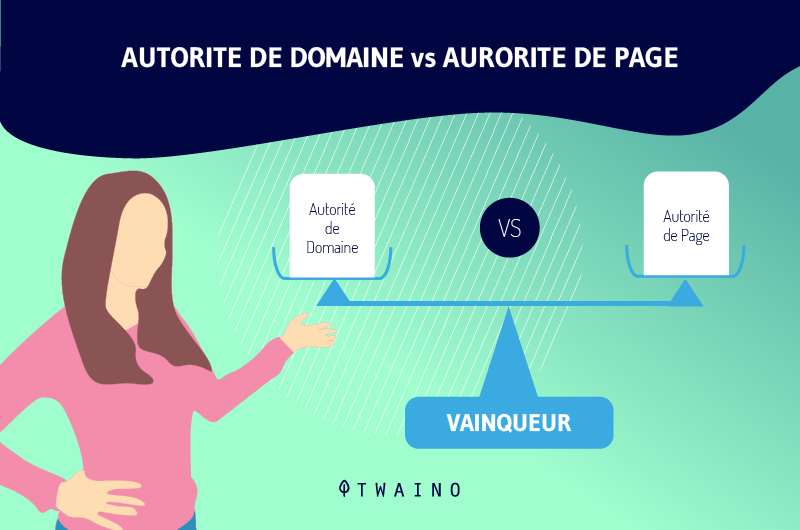
In addition, there are also ready-made tools on the Internet that can help you identify both domain and page authority.
1.3. What is Link Authority?
Like Domain Authority and Page Authority, there is also a metric that allows you to know the ability that each link that points to your site has, this is Link Authority.
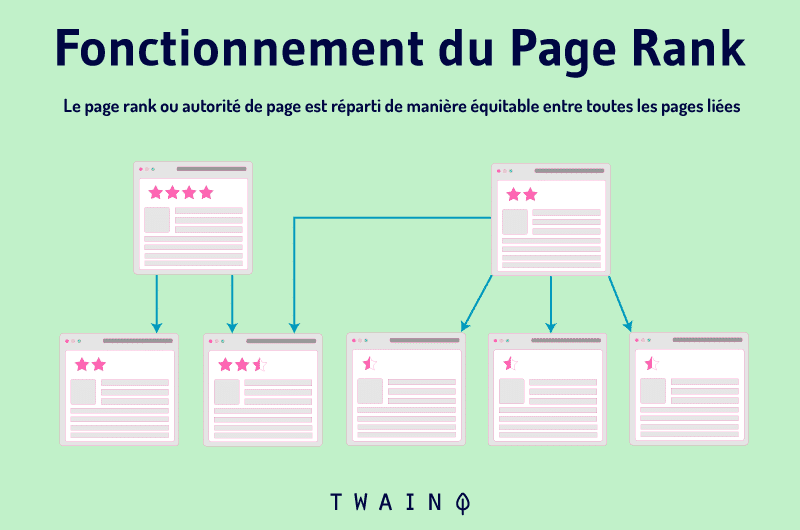
Authority links are links from websites that have established a substantial degree of trust and authority with search engines due to their age, quality and size. Authority is a somewhat subjective concept
Unlike PageRank, Google and other search engines do not provide public references or guidelines for authority links
Authority sites are without a doubt the leading sites in the market, they are essentially :
- Sites representing established government and educational institutions
- Large companies or leading websites
Authority links can provide enormous ranking power to a website if one is lucky enough to get enough of them.
In fact, authority links are derived from link building efforts. They tend to be extremely difficult links to get, and for that reason, most webmasters rarely get them.
1.4. How authority affects SEO
In many circumstances, domain authority can serve as the final push to get search engines to link you to readers as quickly
Despite the density of competition during a query, sites considered authorities are usually the first to appear to serve the searcher.
In addition to domain authority in general, page authority also plays a role in SEO.
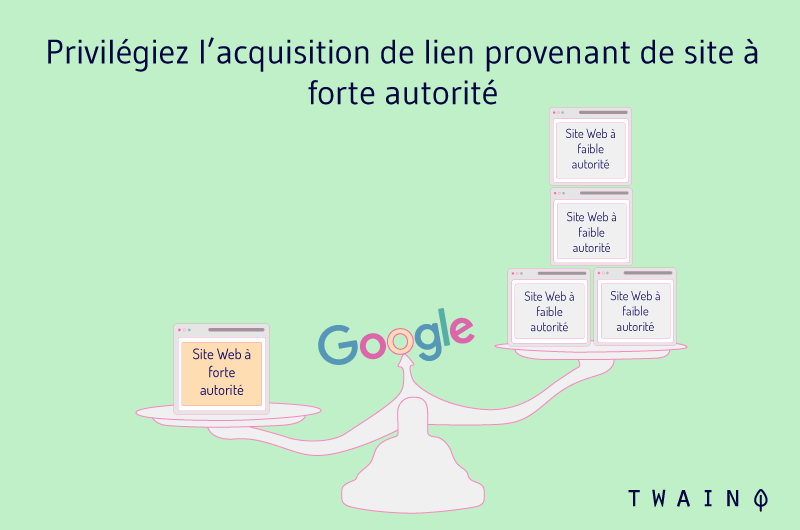
However, if a page has low authority, it is unlikely to rank well in search, especially for competing keywords
A page with high authority gets a boost for its main keywords and usually ranks on many terms.
This means that page authority can help you in many ways
Chapter 2: How to Measure Authority
As we said, Google does not expressively state its ways of calculating or measuring page, domain, or link authority
For this reason, here are some tools that have been put in place to perform this task.
2.1 Moz

Moz is the company that initially defined domain and page authority on a scale of zero to 100
It uses its powerful Link Explorer feature to calculate the authority score of any domain and analyze the links pointing to it all at once
This tool displays information about the domain authority and page authority (PA) of any website or URL a user browses
It also shows whether the page authority of a site is related to higher rankings for specific queries.
2.2. Ahref
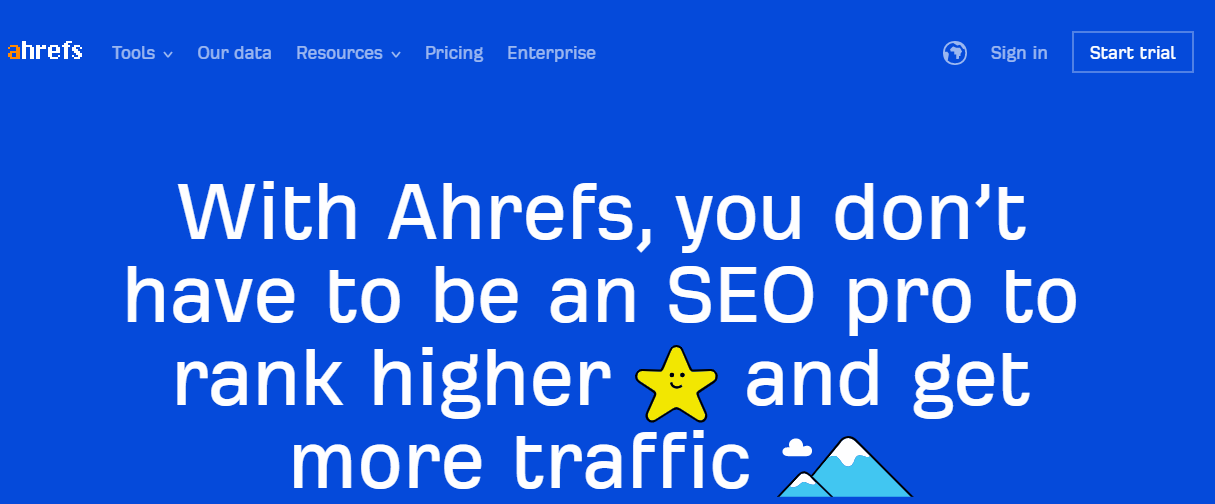
This tool has a large index of links and domains that, like MOZ, allows you to get a clear picture of a website or page’s SEO performance.
The advantage of using Ahref is the way it breaks down the data into graphs and other visualization methods
You can also see the IP addresses of links pointing to your domain or a specific piece of content
Domain ranking and URL ranking are provided as authoritative metrics on this platform.
2.3 Majestic SEO

Majestic, another powerful tool that claims to be the largest link index database in the SEO world.
It has two types of indexes, fresh and historical, which help marketers better understand what is not working well in terms of site performance.
This tool provides everything you need to know about your backlinks and gives you an idea of link velocity using its backlink history feature.
2.3 Google Search Console
Google Search Console shares links pointing to your site, but many experts have found that the data can be old and incomplete
Since you’re probably most concerned with what Google considers backlinks to your website, Google Search Console is a great place to review the links created to your site
Not as user-friendly as other tools and not as comprehensive means you have to look at the data very carefully, but it can be valuable nonetheless.
2.4 Bulkdachecker.com
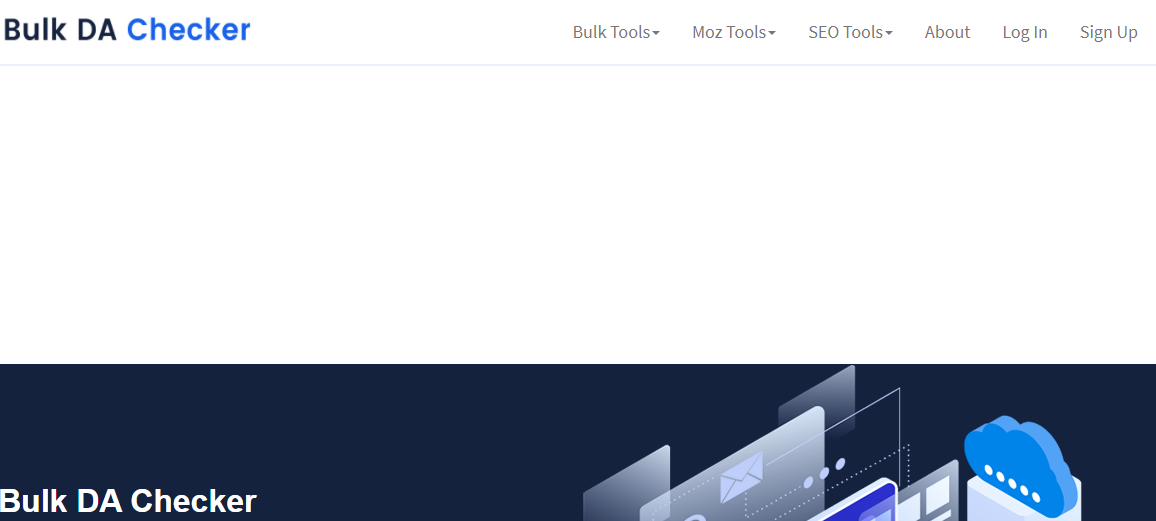
Bulkdachecker is another little-known tool that allows you to check domain authority five websites at a time. Its analysis results are quite accurate in terms of authority verification
It displays a pretty clear overview of the results and not only lets you know the Moz domain authority, but also:
- Page authority;
- The MozRank ;
- And the IP address of the website.
2.5. Ignitedigital.com

With an easy-to-use interface, Ignitedigital is another tool that can calculate the domain authority of 20 sites simultaneously.
However, the links are submitted separately line by line in the authority check box.
Like the others, this tool aims to provide every Moz metric, including:
- Domain Authority;
- Page authority; and
- Link spam score;
- And site IP address.
Ignidigital leverages the latest technology and advanced algorithms to display a clear and unambiguous result.
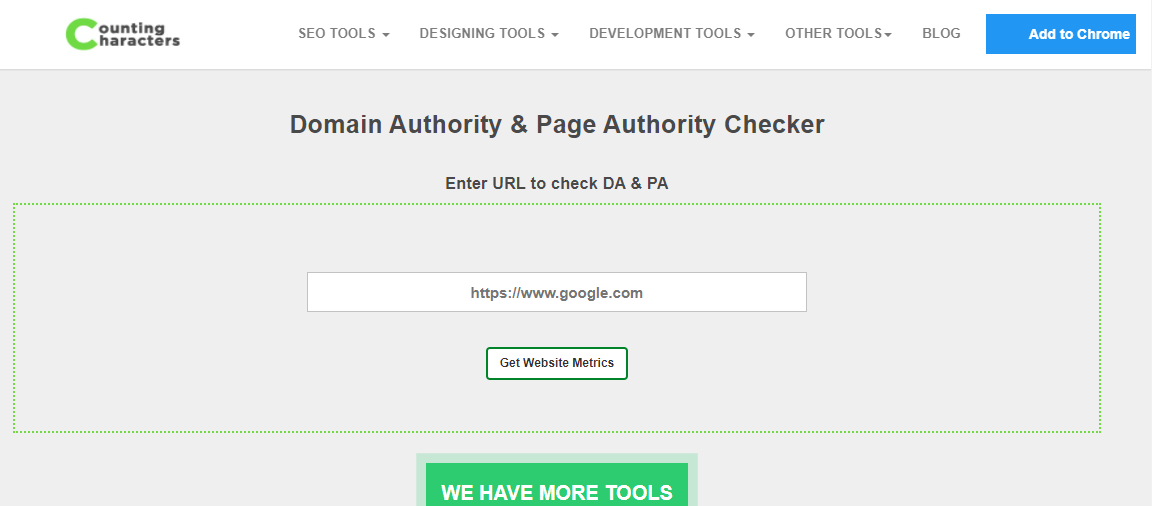
It analyzes the entire website and generates different authority metrics efficiently.
Even though this tool also provides the authority of the pages, it is especially good for evaluating the domain authority.
Chapter 3: How to boost your authority?
Worrying about increasing page and domain authority, can also mean increasing link authority.
3.1. domain authority optimization techniques
Getting a high domain authority score means that your website ranks well in search engine results
For this reason, webmasters should strive to boost their domain authority as much as possible. The good news is that there are several ways to do this.
3.1.1. Focus on on-page SEO
In general, adopting strategies to improve domain authority means doing SEO in some way
This involves a bit of effort on certain SEO practices such as:
- Using optimized titles and descriptions in your well-structured content;
- Adding the right keywords to your content without engaging in keyword stuffing;
- The use of concise and informative headings and subheadings with keywords;
- Loading speed is high enough;
- Linking pages on your site.
These on-page SEO strategies can improve your overall domain authority
In addition to this, you should strive to create quality content that visitors engage with and return to
Many website owners seek professional SEO article writing services for precisely this reason.
3.1.2. Improve link profile
Your domain authority is affected by the quality of links that refer visitors to your site. It is therefore vital to improve your link profile.
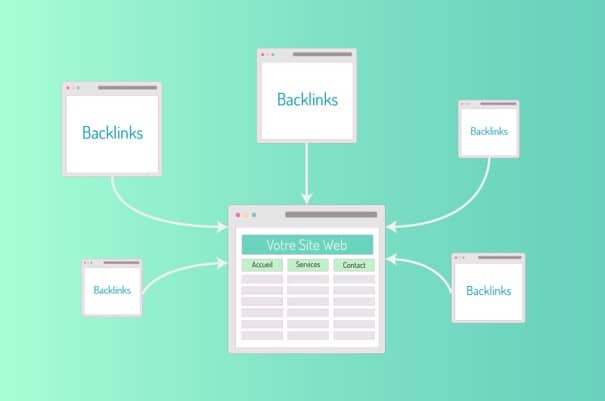
A strong link profile usually has the following characteristics:
- A high number of inbound links from high authority sites;
- Inbound links from websites similar to yours.
You can improve your link profile in a number of ways.
For example, with the Moz Explorer tool, you can detect poor quality links. And to remove them, you can write to the concerned website asking it to end the link. It is also possible to devalue a bad link by asking the owner of the site to use a tag ”no-follow”.
3.1.3. Improve the speed of pages
Nobody likes it when a website takes a long time to load. After all, search engines, like Google, produce thousands of search results in a few seconds
When a page takes a long time to load, it will have a hard time finding a good place in the search results
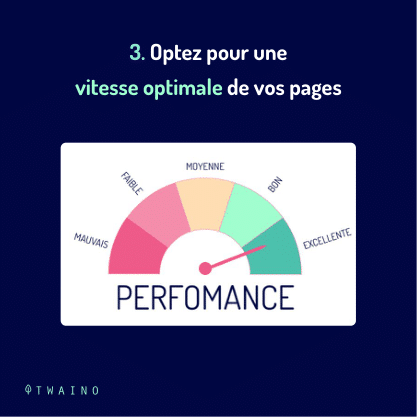
If you want to improve your site’s page load times, you should:
- Remove many unnecessary plugins from your site;
- Use a more powerful server;
- Use a caching plugin;
- Use smaller image sizes.
The benefits of reducing your page load times go beyond just improving your domain authority
Page visitors will have an easier time browsing your site and finding the content they want if the loading speed is good
3.2.4. Work on your technical SEO
Most people think of keywords and article titles when the term SEO is mentioned
However, there are many technical aspects of SEO related to your website. Working on these technical aspects helps search engine spiders crawl and index your site.
You can try to improve your technical SEO yourself, but it may be better to hire an expert who knows SEO
Here are some ways to improve your SEO strategy:
- Fixing site errors ;
- Installing an SSL certificate for the site;
- Creating and optimizing the XML sitemap of the site.
3.1.5. Focus on inbound marketing
Another technique to improve your domain authority is to focus on inbound marketing
Inbound marketing refers to any practice aimed at creating brand awareness via SEO, social networks, blogs and events.
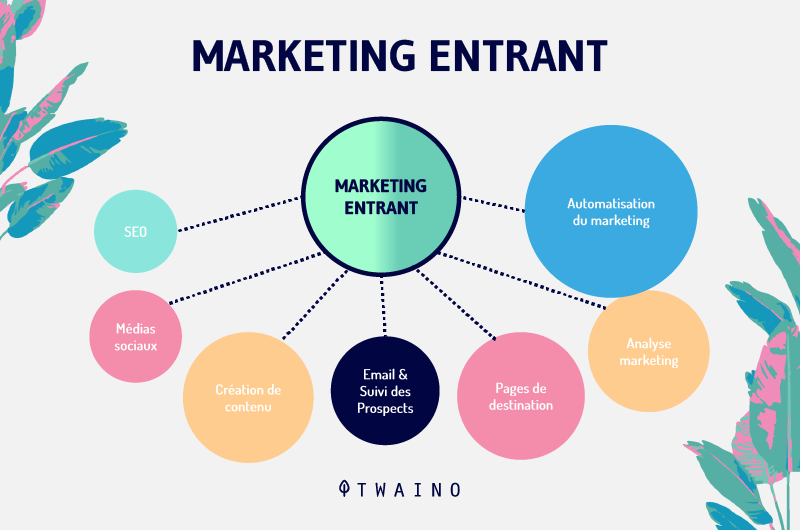
You can use inbound marketing strategies to make your website a trusted authority of its niche
For example, you can post your content on social networks to better interact with your audience
You can include social network sharing buttons on your website to make it easier for users to share your content.
3.2. how to increase the authority of web pages?
Here are some practices that will allow you to raise the authority of links on your website:
3.2.1. Create links to the page you are optimizing
Since PA measures a specific page’s ability to rank, it’s essential to create links directly to the page you’re optimizing.
One of the best ways to naturally attract links to your site is to write longer, more in-depth content that will serve as a resource for your readers.
To get the optimal number of links as well as social shares, the focus should be on creating informative, opinionated content on current topics or well-researched and highlighted content.
3.2.2. Spread link juice from pages with high AP to those with less
An important part of improving your PageAuthority is managing link equity on your site
You will certainly have some pages on your website with high authority, for example, your homepage, versus others with low authority
Fortunately, with strategic linking, you can distribute this authority fairly on each page of your site.
If there are pages you want to optimize, make sure you link to them from pages with high authority. The important thing is to make sure that these internal links are contextually relevant to the topic

This will help ensure a great user experience and boost user signals such as time spent on a site and page views.
If you’re not sure which pages on your site to link from, using Open Site Explorer can help
This tool will allow you to sort your inbound links by authority score so that you can ensure that you are passing as much authority as possible to your low-AP pages.
3.2.3. Make sure each page has useful content
Increasing your PageAuthority will be extremely difficult without great content. Short content will have a hard time attracting links, and it will be unlikely to achieve high PA or rankings.
Your content needs to be thorough and complete, which means it covers all angles of the topic at hand. It must be relevant and should be long enough to have the best chance of ranking.
Various sources have tried to determine how long a page should be to rank well. According to studies, the ideal size is 1600 to 2500 words for a blog post
Instead of obsessing over a specific word count, just make sure you’ve done a thorough job covering your topic.
3.2.5. Regularly remove harmful links to your page
All the hard work you put into building links can be in vain if you have spam links pointing to your page
These bad links can essentially negate the benefits of your good links, resulting in lower rankings, lowered AP, and even a manual penalty from Google.
To identify these potentially dangerous links, you should regularly perform a link audit. Using a tool like Majestic SEO and Google Search Console, you can get a handle on the links to the page you are optimizing
Look specifically for site-wide links, links from questionable sites.
To remove these links, start by contacting the site managers. Politely request that the links be removed as part of your efforts to optimize your site
If all else fails, remember that you can always use Google’s disavow tool to request that certain links be removed from your link profile.
In summary
The authority of a website is a concept that affects several components including the domain itself, the web pages and the links. Being a reflection of the power of your website compared to your competitors, it is relevant to seek to improve it.
To raise your authority, take care of the different SEO techniques while taking care of the quality of the content you create as well as your link profile.
In this article, I have revealed what authority is and how to improve it
If you have any additional resources to add, feel free to use the comments.
See you soon!


